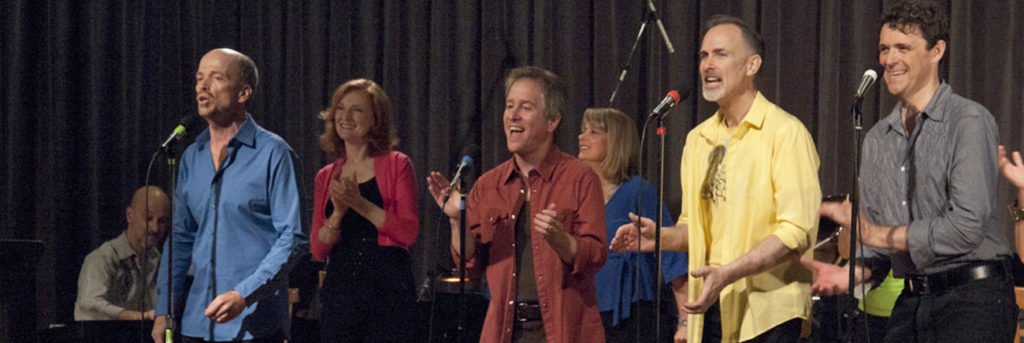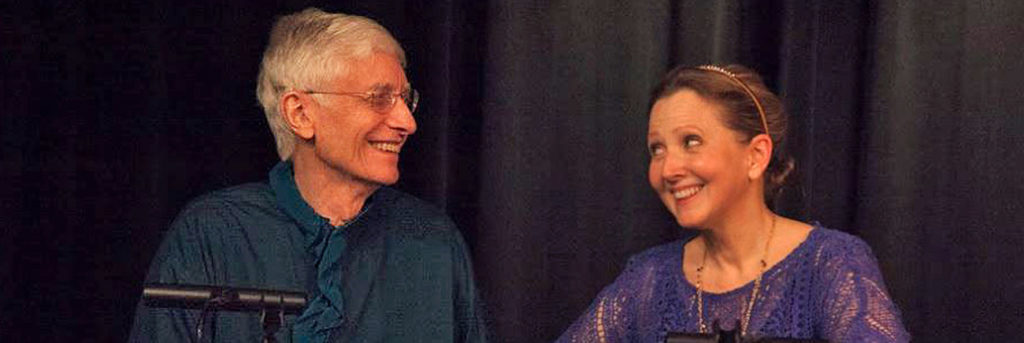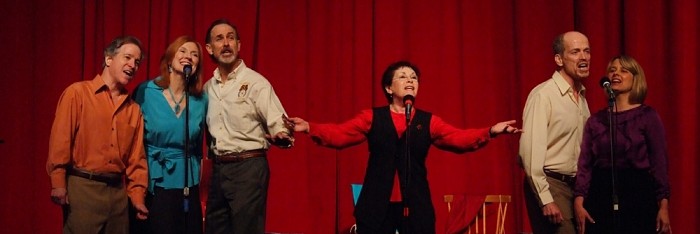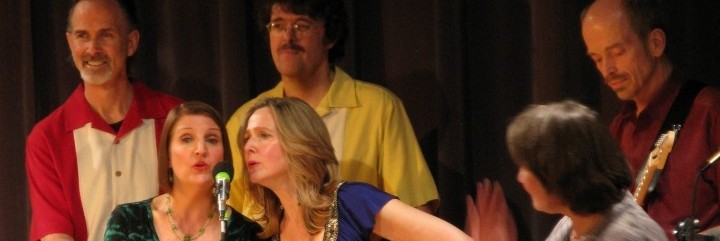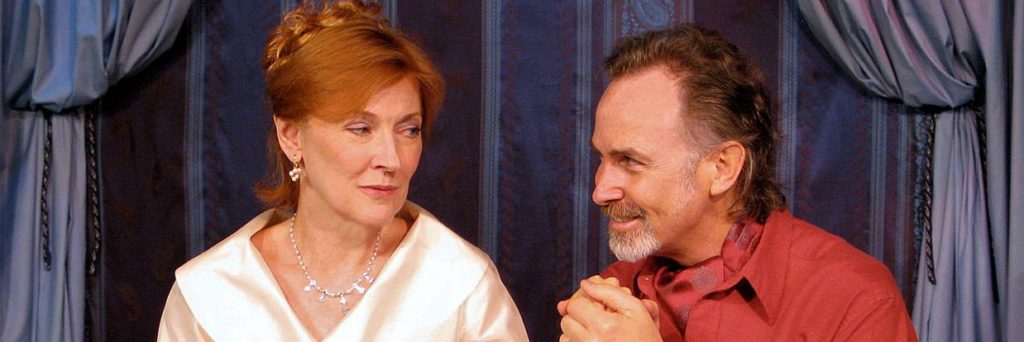Richard Henry Dana on Edmund Kean’s Acting
—From a report by Carol McCluer of an Aesthetic Realism lecture Eli Siegel gave November 8, 1970
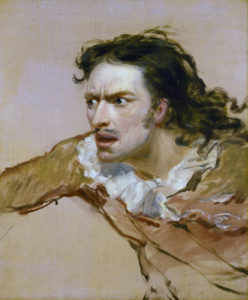
The following is a portion of a report I presented at the Aesthetic Realism Foundation on a class Eli Siegel gave on November 8, 1970, titled “American Poetry Says Something about Poetry.” I respect Mr. Siegel for his passionate desire to see and value what the human mind has done as he looked at work largely forgotten today, including an essay by the American novelist and essayist, Richard Henry Dana. Born in New England in 1797, Dana was a lawyer and literary man who lectured on Shakespeare, and was the father of the author, also named Richard Henry Dana, who wrote the book Two Years Before the Mast.
Dana’s essay is about the great 18th century English actor Edmund Kean. Mr. Siegel called it “perhaps the most important single theatrical criticism in the 1820s in America,” and “the most valuable description of acting perhaps in the world.” In 1824 Kean came to America, and appeared on the stage in Boston. Titled simply, “Kean’s Acting,” the essay begins:
I had scarcely thought of the theatre for several years, when Kean arrived in this country; and…I went to see, for the first time, the great actor of the age. …The simplicity, earnestness, and sincerity of his acting made me forgetful of the fiction, and bore me away with the power of reality and truth… How can I describe one who is nearly as versatile and almost as full of beauties as nature itself… Our faculties are opened and enlivened by it…the very voice which is sounding in our ears long after we have left him, creates an inward harmony which is for our good.
Mr. Siegel pointed to the large value of this essay as he commented:
It is very seldom a critic says, “Through seeing this acting, I become a better person.”…Dana was troubled because there were so many impressions in his mind and he could not get them all together with the large things. Kean did deal in the way he acted with the niceties, the subtleties, and also the masses…Dana says “See how Kean, with all his variety, is constant. That gives me hope.”
Dana was proudly swept by Kean, deeply stirred—and as he writes about what he saw and felt witnessing this great acting, he describes opposites being put together beautifully—intensity and calm, wildness and control, the unbounded and the precise. He says of Kean:
In his highest wrought passion, when every limb and muscle are alive and quivering, and his gestures hurried and violent, nothing appears ranted or over-acted; because he makes us feel that, with all of this, there is something still within him vainly struggling for utterance…Though he is on the very verge of truth, in his passionate parts, he does not pass into extravagance; but runs along the dizzy edge of the roaring and beating sea, with feet as sure as we walk our parlours and while all is uptorn and tossing in the whirl of the passions, we see that there is a power and order over the whole.

“[This] is a fine description of [energy and restraint] in acting as an art,” said Mr. Siegel. And he continued: “This is what art does: it stirs up reality as much as it can in order to show it is friendlier than you imagined.” Dana is particularly moved by Kean’s acting the part of King Lear, and how he could make even a short, inarticulate sound suggest something tremendously large. He writes:
A man has feelings sometimes which can only be breathed out; there is no utterance for them in words. I had hardly written this when the terrible and indistinct, “Ha!” with which Kean makes Lear hail Cornwall and Regan came to my mind. That cry seemed at the time to take me up and sweep me along in its wild swell. No description in the world could give a tolerably clear notion of it…Kean’s playing is frequently giving instances of various, inarticulate sounds–the throttled struggle of rage, and the choking of grief–the broken laugh of extreme suffering…the utterance of over-full love…and that of bewildering grief, which blanks all the faculties of man.
“The writing here is definitely powerful,” said Mr. Siegel. And wonderfully, he gave some examples of inarticulate sounds, saying:
Very often there is a frustration in one’s life and when you’re frustrated all you can say is: “ooarrrgh!”…perhaps knock your head against furniture. There is a way of showing feeling that goes beyond nouns and verbs. Everyone has it in them. The more frustrated one is, the more one begins imitating the beast in the jungle.
The way Mr. Siegel read this essay, and also various lines from the plays Dana wrote about, was magnificent. One of Lear’s lines near the end of the play, he said so movingly: “Prithee, undo this button.” The line can be said in many ways, he noted, as it shows a desire for ease and looseness.
What a tremendous thing it is to be learning about the art of acting and at the exact same time, to be learning how to be a better person, a more honest self! Towards the end of his essay, Dana writes:
Thinking of Kean as I do, I could not honestly have said less and I hold it to be a low and wicked thing to keep from merit of any kind its due…Where God has not feared to bestow great powers, we may not fear giving them their due.
Commenting on the importance of this in the discussion that followed, Chairman Ellen Reiss explained, “This [essay] was [written] in proper Boston, where people were hesitant to praise acting, and then, Kean was a contemporary! Dana knew some persons would feel he praised Kean too much, but to put limits on what should be praised, he felt, was “low and wicked” and that has to do,” she explained, “with why, at the end, he is happy about praising [Kean] with fullness.”
Mr. Siegel said that the reason this is the most important criticism of acting is because “Dana, more so than anyone else, sees good acting or great acting as a means of a person’s coming to more composition within himself.” “No other critic,” he said, “has made so much of this. If this essay is studied,” he continued, “there will be a relation of acting and the honest person in a way no other essay can provide.”
I’m grateful from the depths of myself to be studying Aesthetic Realism, and I want every actor, every person on this earth to meet its greatness and kindness.
First presented at the Aesthetic Realism Foundation, New York City.

